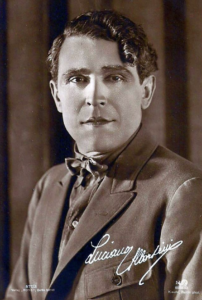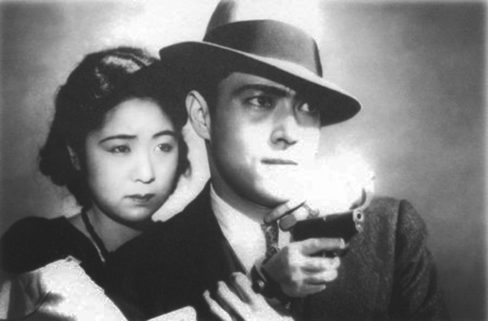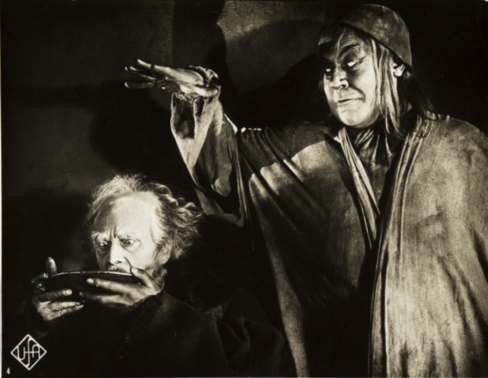 On the 5th and 6th of November the Kennington Bioscope will present its sixth Silent Film Festival, with the support of The Cinema Museum, the British Silent Film Festival and the BFI. All silent films will have live accompaniment by our highly acclaimed team of musicians. The line up below is to be confirmed and subject to alterations.
On the 5th and 6th of November the Kennington Bioscope will present its sixth Silent Film Festival, with the support of The Cinema Museum, the British Silent Film Festival and the BFI. All silent films will have live accompaniment by our highly acclaimed team of musicians. The line up below is to be confirmed and subject to alterations.
The Cinema Museum will open its doors at 09.00.
10.00 Mitchell & Kenyon’s Fiction Shorts
The Mitchell & Kenyon film company was a pioneer of early commercial motion pictures based in Blackburn in Lancashire, England, at the start of the 20th century. They were originally best known for minor contributions to early fictional narrative film and Boer War dramatization films. Sagar Mitchell and James Kenyon founded the firm of Mitchell & Kenyon in 1897. Under the trade name of Norden, the company was one of the largest film producers in the United Kingdom in the 1900s, with the slogans of `Local Films For Local People’ and `We take them and make them’, they operated initially from their respective business premises at 40 Northgate and 21 King Street, Blackburn. The first reported showing of a Mitchell & Kenyon subject was a film of Blackburn Market, shown at 40 Northgate, in Blackburn, on 27 November 1897. The company produced films either on their own initiative or as commissioned by local businesses. Martin Humphries, director of The Cinema Museum, plans to show 41 films from the collection of their early fiction films preserved at the Museum. Piano accompaniment by John Sweeney.
11.10 The Lure of Crooning Water (1920) – BFI 35mm print
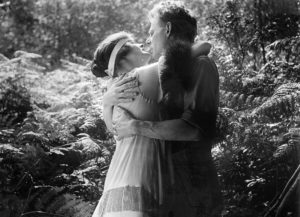 This 1920 British comedy, one of several rural romances directed by Arthur Rooke, features Guy Newall, Ivy Duke and Hugh Buckler and was adapted from a novel by Marion Hill. Georgette Verlaine (Duke) is a favourite stage actress whom Dr. John Longden (Buckler) persuades to recuperate in the country because her lifestyle is ruining her health. He is in love with her and selects a pretty place called `Crooning Water’ where she stays with Horace Dornblazer (Newall), his wife Rachel (Dibley), and their three children. The fact that there is one man who does not fall for her smiles drives Georgette to try and win the admiration of Horace. Piano accompaniment by Colin Sell.
This 1920 British comedy, one of several rural romances directed by Arthur Rooke, features Guy Newall, Ivy Duke and Hugh Buckler and was adapted from a novel by Marion Hill. Georgette Verlaine (Duke) is a favourite stage actress whom Dr. John Longden (Buckler) persuades to recuperate in the country because her lifestyle is ruining her health. He is in love with her and selects a pretty place called `Crooning Water’ where she stays with Horace Dornblazer (Newall), his wife Rachel (Dibley), and their three children. The fact that there is one man who does not fall for her smiles drives Georgette to try and win the admiration of Horace. Piano accompaniment by Colin Sell.
13.00 Lunch
14.00 Die Heimkehr des Odysseus/The Death Cheat (Germany 1922) – BFI 35mm print
Directed by Max Obal with Luciano Albertini, Claire Lotto, Heinrich Schroth. The film’s sets were designed by the art director Hans Sohnle. The muscular, buoyant Luciano Albertini had first been a circus artist before turning to films as an actor, producer and director, first in Italy then in Germany where his Latin appeal made German ladies swoon. By 1920, Albertini’s feats of strength and circus acrobatics were already an established factory brand. The public knew exactly what they were getting when they entered the cinema: breathless action. The plots constructed around this basic principle were always of secondary importance to what was a winning formula. Piano accompaniment by John Sweeney.
15.15 The Gold Diggers (1923) – Restoration Premiere
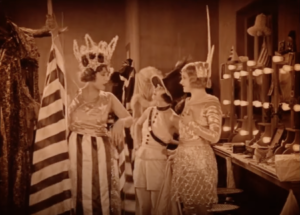 Lost and found: this is the premiere of a new restoration by Joshua Cattermole and Jim Groom of The Gold Diggers, a comedy directed by Harry Beaumont. The screenplay, by Grant Carpenter, was based on the play of the same title by Avery Hopwood which ran for 282 performances on Broadway in 1919 and 1920. Both the play and the film were produced by David Belasco. The film stars Hope Hampton, Wyndham Standing and Louise Fazenda. Long thought lost – along with most of a 1929 remake – The Gold Diggers has long been sought after by film scholars as the precursor of some of Busby Berkeley’s most successful musicals of the 1930s. Piano accompaniment by Cyrus Garbysch.
Lost and found: this is the premiere of a new restoration by Joshua Cattermole and Jim Groom of The Gold Diggers, a comedy directed by Harry Beaumont. The screenplay, by Grant Carpenter, was based on the play of the same title by Avery Hopwood which ran for 282 performances on Broadway in 1919 and 1920. Both the play and the film were produced by David Belasco. The film stars Hope Hampton, Wyndham Standing and Louise Fazenda. Long thought lost – along with most of a 1929 remake – The Gold Diggers has long been sought after by film scholars as the precursor of some of Busby Berkeley’s most successful musicals of the 1930s. Piano accompaniment by Cyrus Garbysch.
16.40 Dragnet Girl/Hijôsen no onna (1933)
Directed by Yasujiro Ozu and starring Kinuyo Tanaka and Joji Oka. A gangster tries to find redemption with the inadvertent help of an innocent shop girl and his jealous girlfriend will do anything to keep him. This 1933 classic demonstrates how silent cinema continued to develop in Japan for several years after being mostly abandoned in the West. The accomplished and psychologically complex gangster tale pivots on the growing attraction between a hardened career criminal and the sweet-natured older sister of a newly initiated young hoodlum – a relationship that provokes the jealousy of his otherwise patient moll. With effortlessly cool performances and visual inventiveness, Dragnet Girl is a bravura work from Yasujiro Ozu. Piano accompaniment by Lillian Henley.
18.30 Dinner
19.30 Faust – A German Folktale/Eine deutsche Volkssage (1926)
Produced by Ufa in 1926 and directed by F. W. Murnau, Faust features Gösta Ekman in the title role, Emil Jennings as Mephisto, Camilla Horn as Gretchen/Marguerite, Frida Richard as her mother, Wilhelm Dieterle as her brother and Yvette Guilbert as Marthe Schwerdtlein, her aunt. Murnau’s film draws on older traditions of the legendary tale of Faust as well as on Goethe’s classic 1808 version. Murnau’s Faust was the most technically elaborate and expensive production undertaken by Ufa until it was surpassed by Metropolis the following year. Filming took six months, at a cost of 2 million marks, only half of which was recovered at the box office. Film historians claim that Faust seriously influenced studio shooting and special effects techniques. Murnau used two cameras, each filming multiple shots; many scenes were filmed time and time again. Faust was Murnau’s last German film, immediately prior to his move to the US. Piano accompaniment by Costas Fotopoulos.
In addition to lunch and dinner breaks there will be short intervals between each programme.
Details of the Saturday programme here.
Tickets & Pricing
Weekend Ticket £30 / One Day £18 / Afternoon and evening pass £12 / Evening pass £6. You can also book dinner (£9) on both days at the Cafe Jamyang, next door to the Museum. Tickets and dinner bookable here.
Important note about meals: If you are ordering a meal please do so before Monday 24 October. The cafe now charges us a hire fee, and if we have not received enough bookings for meals by that date we will have to cancel the hire of the cafe and issue a refund for any meals that have been booked.

